

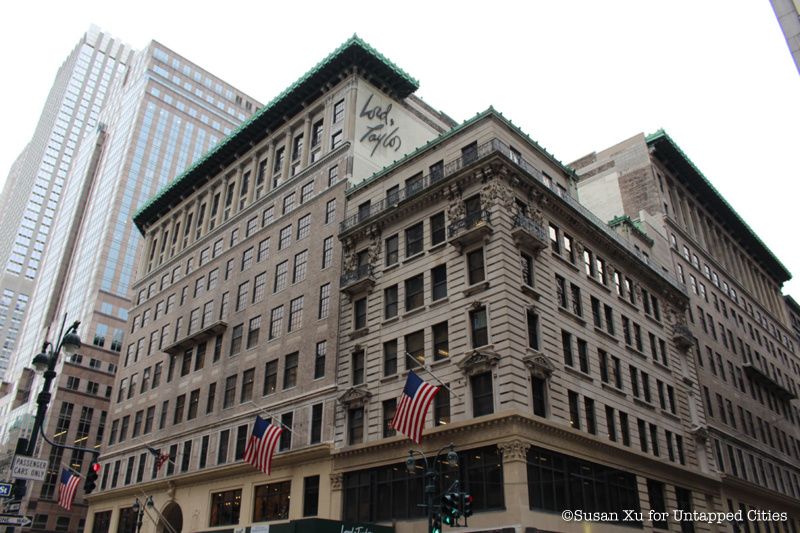
One of New York City’s most extravagant department store buildings, Lord & Taylor, has been standing tall on Fifth Avenue, between 38th and 39th streets, since 1914. Named a New York City Landmark in 2007, the building has been a major icon of the city for more than a century — and now, it is being sold and transformed into WeWork’s global headquarters. Hudson’s Bay, the company that owns the department store chain, said on Tuesday that it was selling its flagship store, according to The New York Times.
For those interested in learning about the building’s vast history before it is forever transformed, read on to discover its many secrets:
10. The Lavish Facilities Once Inside Lord & Taylor
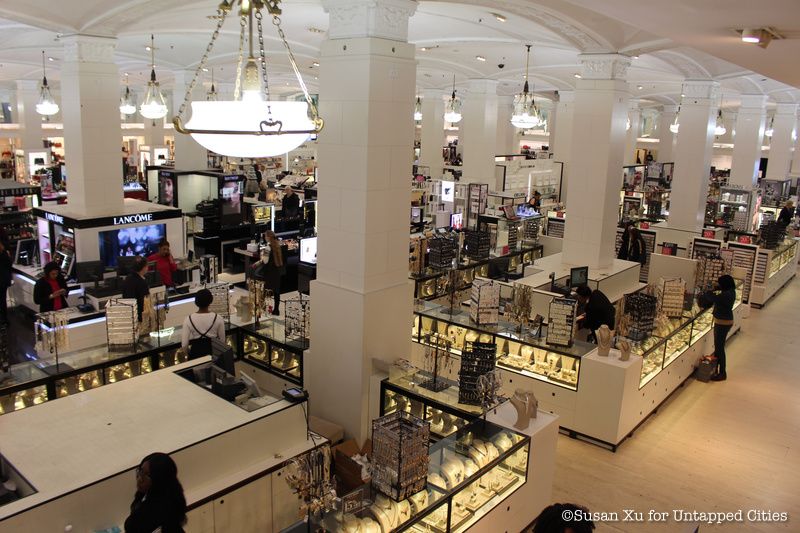
Inside Lord & Taylor today
As grand and elegant as the Fifth Avenue Lord & Taylor building appears on the outside, no one could have possibly imagined the luxurious features that were once in the shop. Upon its opening in 1914, the building included a gymnasium, an open-air promenade, and even an entrance for customers to entire the building directly in their cars. It also contained a concert hall, housing a $75,000 Welte Mignon Pipe Organ claimed to have the greatest tone and quality possible.
The store also offered some unique shopping features for customers. For example, the equestrian section contained a mechanical horse that mimicked trotting and walking movements, so that customers would be accurately fit for their riding needs. There were also dressing rooms with multiple lighting options so that customers could see how their attire would look in various settings. Lastly, the store contained general waiting and rest rooms equipped with telephones, telegraphs, a cable office, a post office, and a traveling bureau.
9. Lord & Taylor Is an Entirely Fireproof Store
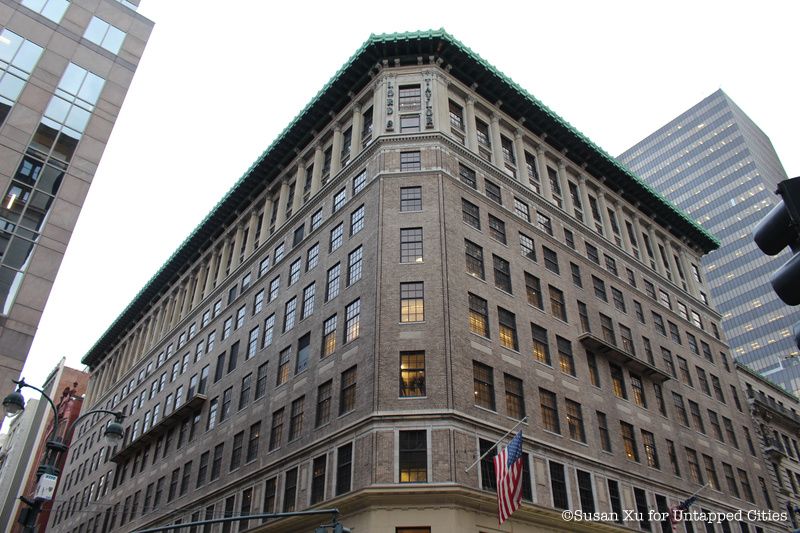
One little known fact about the Fifth Avenue building is that it is completely fireproof. In fact, when it was constructed, the only wood floor in the entire building was located in the Oriental Rug section; wood was also used sparingly on counters, fixtures and and decorative paneling.
The store also took a number of fire preventative measures: there were automatic sprinklers, fireproof doors and stairways, a store fire patrol that drilled under experience firemen, and a vacuum heating system within the building. These features combined with the construction of the building provided it with the lowest insurance rate of any other store in the United States.
8. Lord & Taylor’s Windows Sink to the Basement
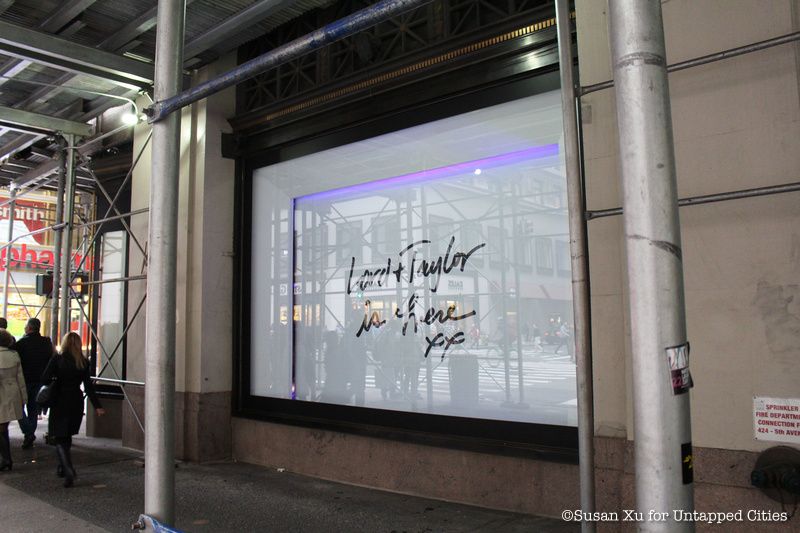
The Fifth Avenue Lord & Taylor building is never as prominent as it is during Christmas time. It has one of the most impressive Christmas window displays in all of New York City, and possesses a special feature which makes that possible. The 102-year-old building retains a rare hydraulic system that enables the window displays to be raised from the basement to street-level on Fifth Avenue.
“It raises like a freight elevator; it was used for horse and buggies,” says Roe Palermo, divisional vice president of store visuals for Lord & Taylor.
7. A Critical Battle of the Revolutionary War Took Place Near the Site of Lord & Taylor

Perhaps one of the most surprising facts about the Fifth Avenue building is that a critical battle of the Revolutionary War occurred right next door. The battle took place on September 15th, 1776, following Washington’s retreat to Fulton Ferry after General Howe’s successful attack on the Continentals at Brooklyn. Washington’s troops planned to move to Harlem Heights, but were stopped by four British ships posted at Kip’s Bay on 34th street.
Washington, who had left for Harlem Heights before his troops, heard the fire and galloped back to find them on “Inclenberg,” the estate of Robert Murray. A portion of the estate is now inhabited by the Fifth Avenue Lord & Taylor building.
6. Lord & Taylor Was the First Retail Store to Relocate onto 5th Avenue
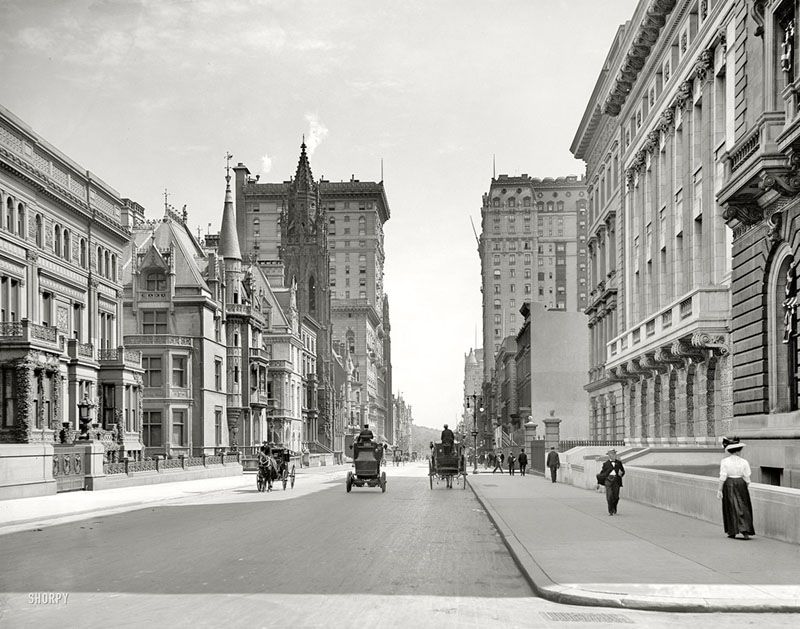
What Fifth Avenue (north of 51st St.) looked like in 1908. Image via Wikimedia Commons
Built in 1826, New York City’s Lord & Taylor is the oldest retail department store in the United States. It was the very first retail store to move onto Fifth Avenue, notorious for its upscale shops. The Fifth Avenue Lord & Taylor was also the first retail store to install elevators in the building, and the first to employ the idea of a personal shopper.
Today, Lord & Taylor has over 40 stores across the nation, focusing on displaying products by American designers like Calvin Klein, Ralph Lauren, and Marc Jacobs. It remains one of the most successful and notable upscale department stores in the country.
5. The 10th Floor of Lord & Taylor Was Once Reserved for ‘Men’s Interests’
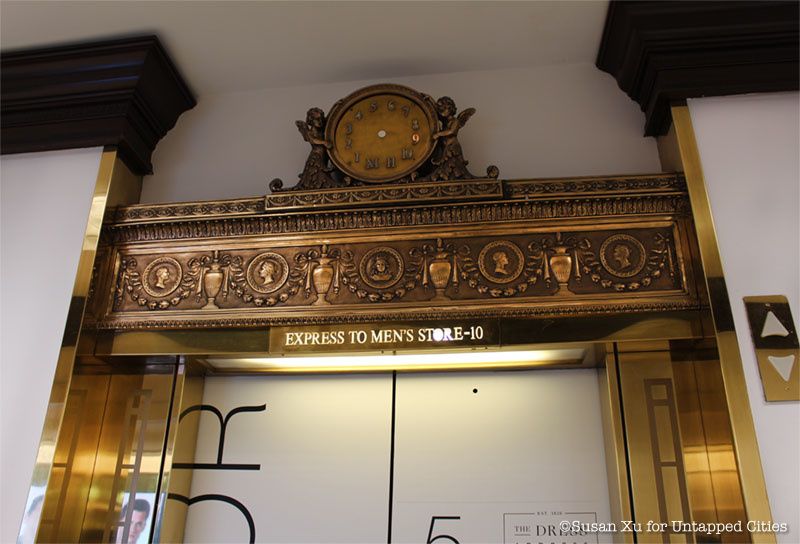
During the Great Depression, Lord & Taylor’s 10th floor was reserved for “men’s interests,” and included a men’s entrance on 38th Street that led directly into the shop. The variety of items sold on this floor included aprons and chef’s hats for barbecuing. Besides this, there was also a men’s smoking room inside the store.
Today, Lord & Taylor has two men’s sections on both the 9th and 10th floors, selling everything from active wear and shoes to accessories and suits.
4. Lord & Taylor is being Renovated into the WeWork Headquarters
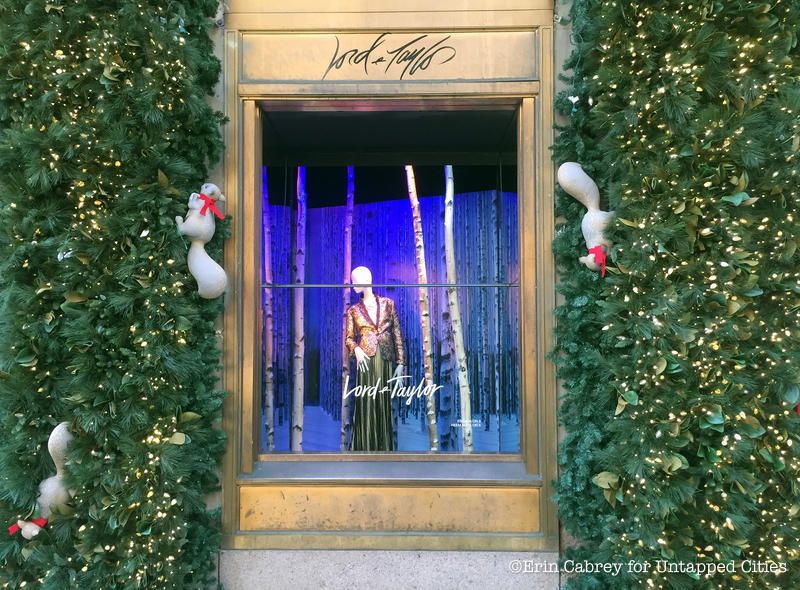
The iconic Lord & Taylor building, which has occupied Fifth Avenue for more than a century, has just announced that WeWork, a seven-year-old startup company renovating the idea of work space, will be taking hold of the building after Christmas 2018. WeWork plans to use the space as its global headquarters and rent out the remaining sections of the building to its clients.
Lord & Taylor is not the first major retail store to shut down a standing location. As the world of online shopping grows and more stores move to the internet, retailers are reevaluating the use of their physical spaces. In just the past year, Macy’s has shut down dozens of locations due to this phenomenon. Shopping malls are converting stores to movie theaters and gyms in an attempt to make up for the economic struggle and attract more customers.
Lord & Taylor has sold its most famous location to WeWork for $850 million with the idea that the space will be more successfully utilized by working millennials. However, it will still rent out roughly a quarter of the building, where it will operate a down-sized department store.
3. Lord & Taylor’s Various Sections Sold Toy & Dolls, Art Goods, Plants and More
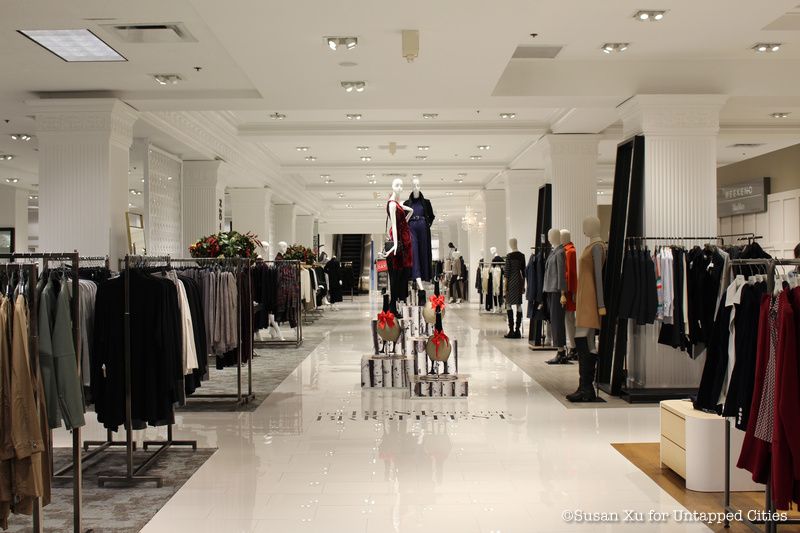 Today, Lord & Taylor mostly sells clothing and accessories
Today, Lord & Taylor mostly sells clothing and accessories
Although Lord & Taylor as we know it today mainly sells clothes, shoes, and accessories, there was once a time when the retail store sold much more. The Seventh floor, for example, once offered records, music rolls, and even pianos to customers interested in more than just clothing. The store even included a year round toy and doll section, showcasing a 7 x 16-foot tank filled with hundreds of mechanical water toys.
Even further, the tenth and fifth floor sold in-house made candy; the balcony overlooking the street offered flowers and plants, and the store even included a traveling section stocked with the world’s best trunks. Needless to say, Fifth Avenue’s Lord & Taylor was (and is) an extremely versatile store.
2. There Was Once a Children’s Barbershop Inside Lord & Taylor
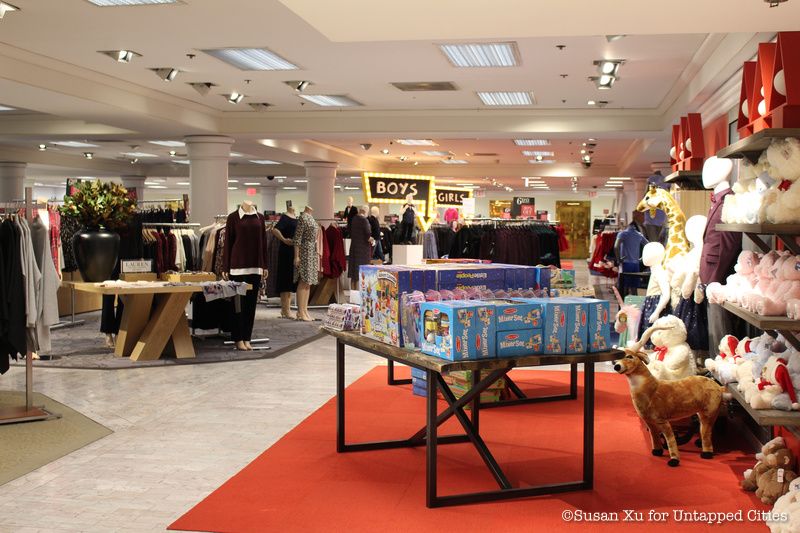
The Children’s Department today, located on the 7th floor of Lord & Taylor
Along with its various unique products, the Fifth Avenue Lord & Taylor was also home to a Children’s Barbershop, next to the infants’ and children’s department on the fourth floor of the building (and a men’s barbershop on the mezzanine basement). According to a 1920 Dry Goods Economist article, it was so attractive that any child would be “happy to go through the clipping ceremony” to just play in the toy-filled room.
The “Happyland Barber Shop,” operated by “Barber Bill,” boasted see-saws, a crystal maze with fun mirrors, a tower with a slide and a decorative frieze depicting fairytales. Most importantly, instead of seats, children could sit on horses mounted on hydraulic bases as they got their hair cut.
1. House Physicians and Graduate Nurses at Lord & Taylor Tended to Employees
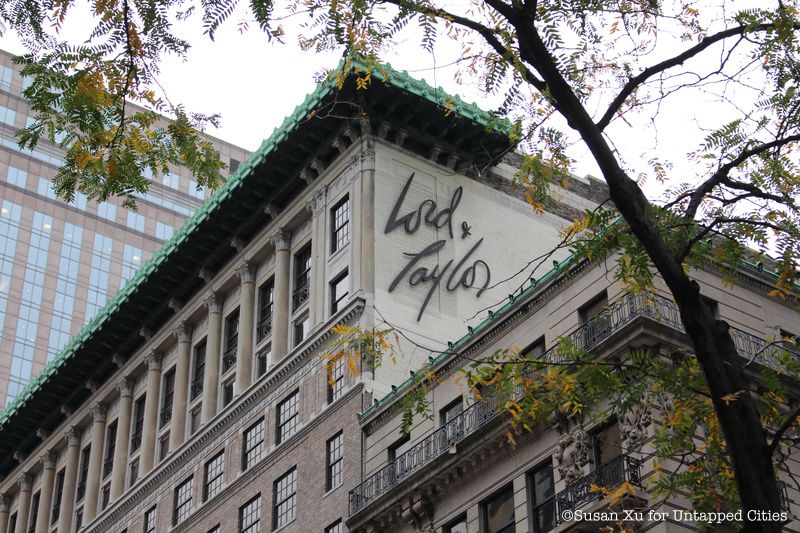
Early into the Fifth Avenue Lord & Taylor’s opening, the store did not only employ retail workers. It also had a full staff of house physicians and graduate nurses who tended to the employee’s needs both at home and inside the store. In fact, every applicant had to be examined by a physician prior to being hired. The healthcare staff also helped to supervise the hygienic requirements for the fourth floor, containing the children’s barbershop.
Next, check out Historic Plaque Marks the NYC Home of Playwright Lorraine Hansberry, or A Miniature Bridge Made of Pipe Cleaners Now on View by the West Side Highway in Chelsea, NYC. Get in touch with the author on Instagram @mjohnathonrich.

